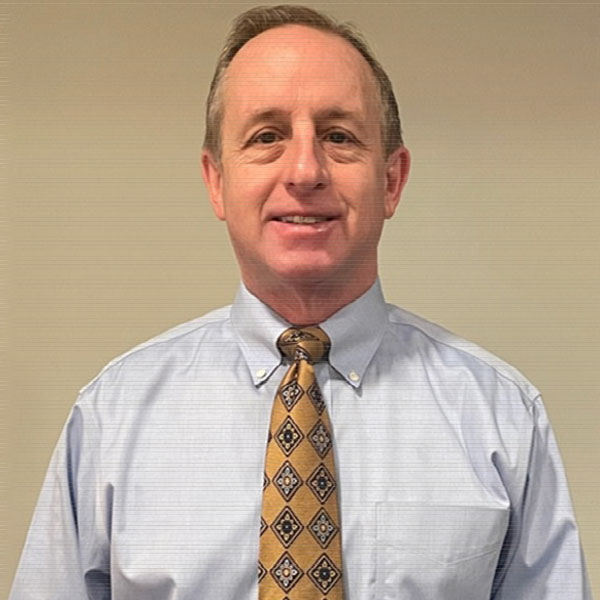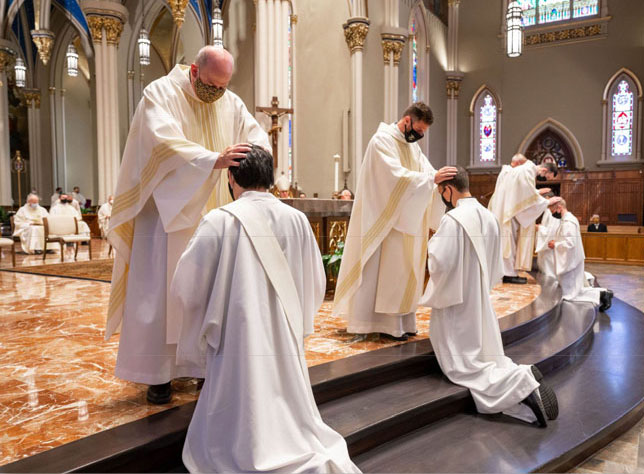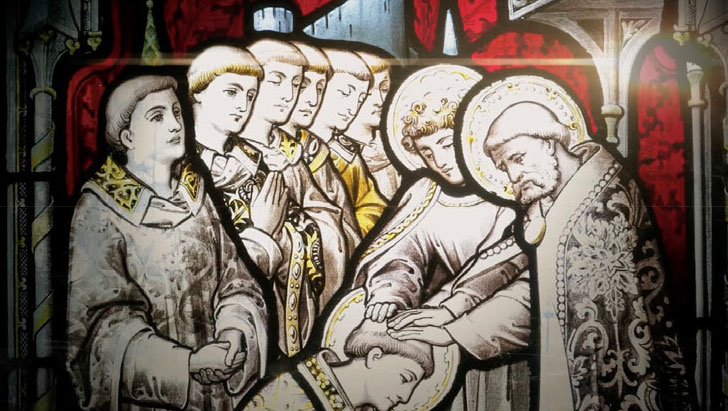
Congratulations Deacon Jack Hayes
08/21/2022 | A Message from Our PastorDear Parishioners,
Our parish community is exceptionally joyful today as we welcome Mr. Jack Hayes, one from among us, into ministry as a permanent deacon of the church. (A “permanent” deacon is distinguished from a “transitional” deacon. The latter is a deacon who will eventually be ordained to the priesthood. The former is a deacon who, more often than not, will remain in that ministry permanently and not be ordained to the priesthood.) Jack was officially and liturgically ordained into this ministry on Saturday, August 20, 2022 by Bishop Ronald Hicks at the Cathedral of St. Raymond in Joliet.
Since the reforms of the Second Vatican Council, our parish has been blessed with exemplary deacons who served, and who continue to serve, this faith community in a variety of ways. By now, most Catholics in this and in developing countries are familiar with permanent deacons and the vast array of services that they provide the Church. They are able to perform these services as married men, provided their marriage preceded their ordination. When a deacon’s wife passes into eternal life, the deacon may request to be ordained to the priesthood, but he is not free to marry again.
In learning about deacons, one of the first questions people ask is, “What is he allowed to do?” Their question typically refers to those liturgical responsibilities that a deacon may undertake. While it is a logical question to ask, we must be careful not to understand deacons as “mini priests” or “the next best thing” to priests because there is a shortage of the latter.
The diaconate is a vocational calling in its own right, and while deacons certainly offer their assistance to priests and bishops, most visibly in the liturgy, theirs is first and foremost a calling to serve the laity in the active apostolate of the Church. In the Bible, the first reference to deacons is in the Acts of the Apostles 6:1-6. In this account, the apostles recognize that their administrative duties were so demanding that the widows (and others in need) were being neglected in the daily distribution of food. To remedy this unfortunate situation, they selected 7 men over whom they prayed and upon whom they laid their hands in ritual fashion. These men were called “deacons” from the Greek word diakonia, meaning service. They assisted in the mission of the early Church so that the apostles and those called “presbyters” (later called priests) could continue in the responsibilities to which they were called. Thus by the 2nd century AD, there had emerged the threefold division of Holy Orders that consisted of bishops, presbyters (priests), and deacons – the same sacramental structure we possess today.
Besides assisting in the distribution of food for the poor, the deacons of these early centuries were given other responsibilities, such as financial management and care for the temporalities of the Church, especially the sacred books and vessels used in the liturgy. Deacons were of such importance and held in such high regard, that during periods of persecution, civil leaders frequently arrested and executed the deacons first knowing that if there were no deacons, a faith community would find it difficult to survive.
Deacons continued to serve the church in the early Middle Ages until around the 8th century, when the diaconate became a stepping stone to the priesthood. Eventually, the diaconate as a unique and permanent vocation disappeared until the fathers of the Second Vatican Council restored its place in the life of the Church, where first and foremost, deacons serve by bearing witness to Jesus Christ, who came not to be served, but to serve (Mark 10:45). By virtue of his ordination, the deacon is an emissary of the bishop through the threefold service of liturgy, word and charity. Ultimately, the deacon is called to reveal that authentic ministry is not primarily what we do, but who we are. All our actions flow from our identity as servants in imitation of Jesus. The liturgical tasks that deacons are privileged to perform include: assisting at the Eucharist by proclaiming the Gospel and preaching the homily on occasion, celebrating Benediction of the Blessed Sacrament, baptizing, witnessing marriages outside the context of the Mass, conducting wake services and committal rites, and blessing religious articles.
Our parishioner, Jack Hayes, is well suited for these and other roles he will assume. Jack and his wife Donna, along with their three children, Brian, Lauren and Kelly, have been members of St. Joan of Arc Parish for over 30 years. While continuing in his full time position as president of a commercial construction company in Addison, IL, Jack will continue in ministries he has undertaken for a number of years, such as leading our Marriage Preparation Team and organizing the Saturday morning prayer group for men, “Brothers in Christ.”
In addition, Jack will oversee the liturgical ministries of our parish, preach at liturgies, preside at baptisms, wakes and committals, provide professional advice on matters that pertain to the repair and enhancement of our church building, and wash the pastor’s car on a regular basis ;-)
I know I speak for all of us at St. Joan of Arc Parish by offering our heartfelt welcome to Jack into this new dimension of his life and by assuring him of our prayers.
Blessings,


